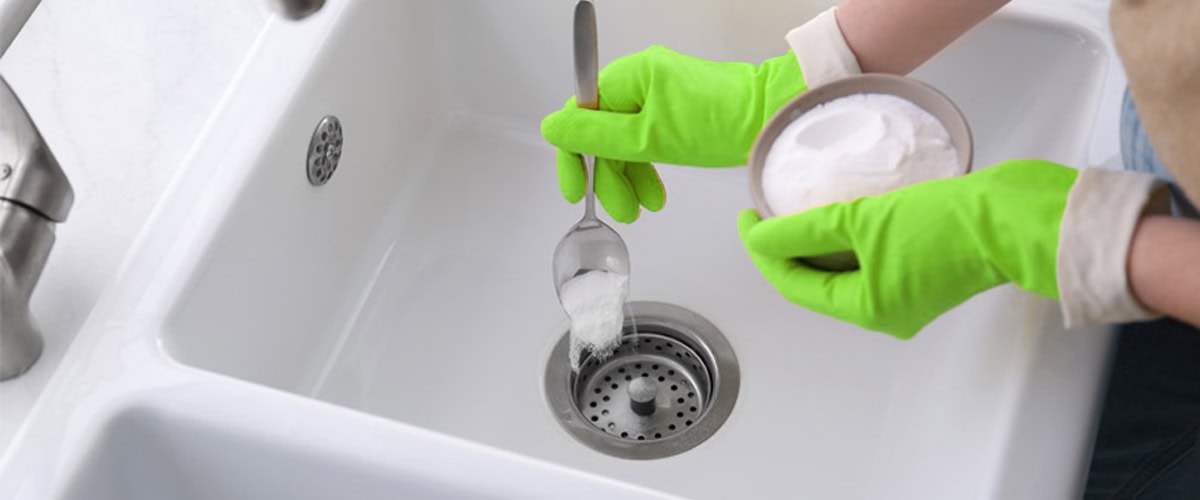People often encounter blockages in drains and sewers of washbasins, bathtubs, and large household appliances. In such a situation, the wastewater does not drain well, an offensive smell comes out, and it becomes difficult to live in such premises.
Mixed contaminants (dust, animal hair, fur, fibers, fat, food debris, water sediments, dirt, mold, damp environment microorganisms, etc.) gradually accumulate in the pipe and reduce their diameter until the water flow stops completely. You can fix this plumbing problem yourself or seek help from a professional plumber in Costa Mesa. So, let’s talk about scenarios to use DIY drain cleaners or contact plumbing services.
Why are Drains Clogged?
Incorrect Installation
Many homeowners try to install drains themselves to save some dollars. It may lead to the incorrect installation of the appliance if they don’t have any plumbing experience.
Gradual Accumulation of Household Dirt
Over time, different materials accumulate in drains, such as hair, wool, fibers, plaster, cement, paper, tissues, clothes, and other household dirt. Moreover, some types of dirt washed down the drain are retained on the walls of various plumbing fixtures, and subsequent cold water drainage is unable to wash them away. If you don’t clean drains regularly, small clogs transform into larger ones and cause mayhem on the premises.
Flushing Large Objects
Most people have a bad habit of flushing large objects down drains, which leads to severe clogging. These items may include small toys, condoms, expired medications, cotton balls, dental floss, baby wipes, personal hygiene wipes, feminine hygiene products, diapers, paper towels, etc.
Severe Frost
In extremely cold weather, there is always a risk of water freezing, which leads to the formation of ice build-up inside the drain.
How To Find Clogs in Drains?
To choose an effective cleaning method, you need to determine the type and location of the clogs. See how the water leaves all the plumbing fixtures and examine the following:
Siphon
Check if the wastewater is retained in only one drain throughout the entire house. Stagnant wastewater may contain contaminants that accumulate over time and create obstinate clogs. You can see the dirt by simply looking into the drain with a flashlight. However, indirect signs, such as an unpleasant smell, can indicate problems with the siphon.
Kitchen and Bathroom Drains
This is where grease deposits often settle on pipes and gradually collect other types of dirt. Always remember that it is not found elsewhere in the bathroom, as hot water washes it away and prevents the formation of clogs.
Toilet Drain

Generally, the toilet is connected to the riser with a flexible corrugated pipe or other connecting elements. If it is not installed correctly, it can create a large angle or bend. Debris can accumulate in these places in such cases.
Horizontal Sections of Drain Pipes
There is a high probability of clogs in this section of the drain pipes if water stagnates.
Tees and Other Types of Connections
They can trap paper, hair, and other types of dirt, leading to the formation of clogs.
DIY Sink Drain Cleaner: Convenient Options You Can Try
Use Hot Water
This cleaning method will help you clear small clogs that form in the siphon and kitchen pipes. Hot water quickly liquefies and washes them away. However, it is not effective if there are stubborn clogs.
To clean clogs:
- Take a container of hot water.
- Put on gloves or use potholders.
- Gradually pour water into the drain hole.
- Rinse the drainage system with plenty of running water.
Have at least 5 liters of boiling water to wash all pollutants away. You should not use this cleaning method if the drains are made of thin-walled plastic corrugations or pipes. Remember, intense heating can deform plastic, causing plumbing leaks.
Use Baking Soda and Vinegar
Take 200g of baking soda and 200 ml of vinegar. Put the soda into the hole, pour in the vinegar, and cover the drain hole with a plug. The reaction between these two substances will start almost immediately. Open the drain hole after 10-15 minutes and pour some hot water. It will clean minor clogs in drains.
Salt & Caustic Soda
You can use a combination of salt and soda to eliminate greasy dirt in drain pipes. Take half a mug of salt and mix it with one mug of soda. Mix them and dissolve them in water. Pour the liquid into the drain pipes. After 10 minutes, the process of liquefying and moving the greasy residues in the pipeline will start.
Citric Acid
Remember, citric acid breaks down clogged deposits in drain pipes. Pour 100g of citric acid into the sink drain and then put in 250 ml of boiling water. After 20 minutes, turn on the hot water to help dislodge any remaining clogs.
Sodium Hypochlorite: The Best DIY Drain Cleaner for the Sink
If you want to clean obstinate clogs, use sodium hypochlorite. It will break down solid compounds, disinfect the surface being cleaned, and fight stains. Use it for deep cleaning of drain pipes from organic growths and many pollutants. Cover your face, hands, feet, and other parts of the body, and handle the chemical with extra care to avoid burns and other unfortunate incidents.
It is highly recommended that you perform cleaning work once every 90 days, without waiting for clogs to become bigger.
Should You Call A Professional Plumber?
Yes, you should. When you clean drain clogs independently, there is always a risk of damaging the pipe. In addition, the results of your efforts may not be satisfactory. So, consult us at Parzival Plumbing. We have a team of professional plumbers in Newport Coast. We respond to your call immediately and do the needful.
- Our plumbers use professional diagnostic methods to quickly find the source of the problem.
- We use numerous tools to eliminate blockages of any complexity.
- Our care for the plumbing infrastructure guarantees the safety of the pipeline.
- Our service cost is affordable.
Preventive measures
To avoid blockages, simply prevent them from appearing. This will help minimize cleaning costs and extend the service life of the drain network in your house or commercial apartment. Here are some useful recommendations that you must follow:
- Don’t wash away waste materials into drains.
- Use toilet paper rather than substitutes such as napkins, paper towels, etc.
- Install a garbage disposal in the kitchen sink. Call our plumbers in Mission Viejo for this. This will prevent the creation of clogs in drain pipes.
- Clean the siphons every 90 days or earlier. It will ensure the free flow of water through drains and prevent waste materials from accumulating.
- Rinse the sink with boiling water once every 2-3 weeks.
- If you find any bent or deformed pipes, get them replaced by our plumbers in Laguna Hills.
Conclusion
Drain clogs disturb your everyday life, damage plumbing systems, and demand immediate action to prevent the situation from getting worse. Follow these sink drain cleaner DIY tips to clear all blockages and keep the sewage system in your house in excellent condition. Don’t forget to call Parzival Plumbing for professional drain cleaning services. Our plumbers will clean all clogs using tools and technologies and help you maintain sanitation throughout the premises.


